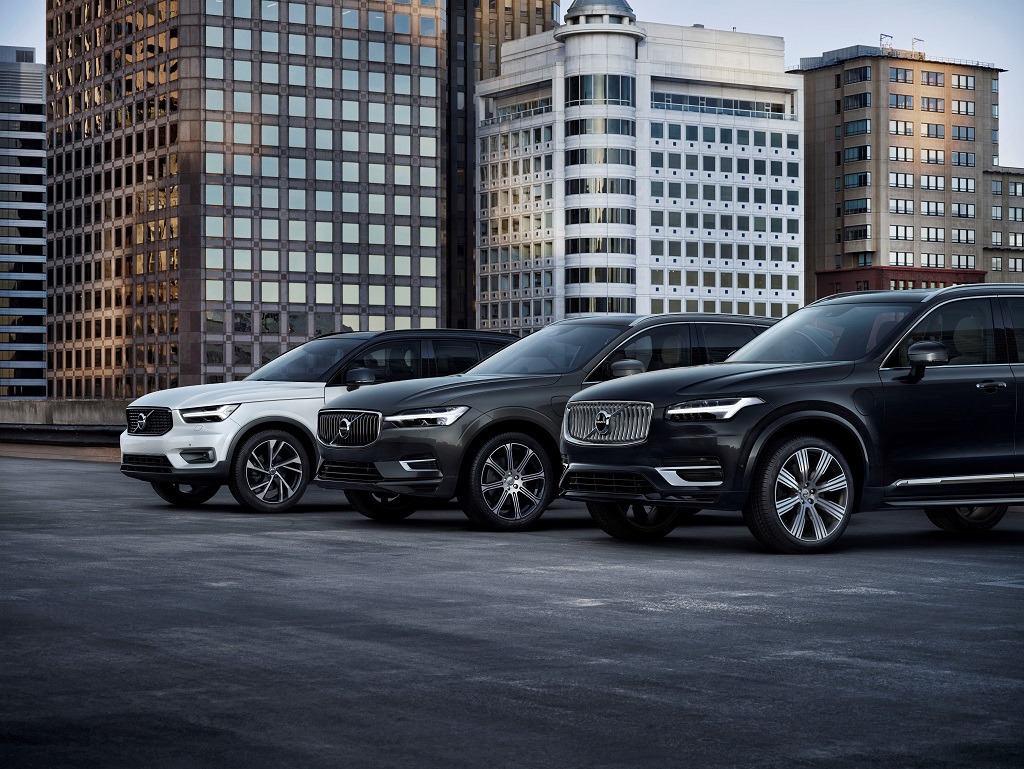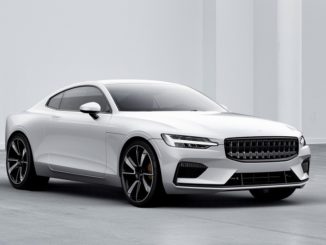
Volvo Cars reported the strongest second-half sales numbers in the company’s history in 2020, as fast-growing demand for its electrified cars boosted the company’s recovery from the COVID-19 pandemic impact.
The company acted decisively to mitigate the impact of the pandemic during the first half of the year, allowing it to quickly restart its operations after a brief shutdown and embark on a strong recovery, helped by fast-growing demand for its Recharge line-up of charegeable cars.
The share of Recharge models, with a fully electric or plug-in hybrid powertrain, more than doubled in 2020 compared to 2019. In Europe, the share of Recharge cars of overall sales was 29 per cent, making Volvo the leading brand in the region for chargeable cars. It was also a leading plug-in hybrid brand in the US.
In China and the United States, its two largest individual markets, the company reported growing sales for the full year as it managed to more than recover a pandemic-related sales drop in the first half during the second half of the year.
“We had a great second half of the year after a tough start, gaining market share in all our main sales regions,” said Lex Kerssemakers, head of Global Commercial Operations. “We aim to build on this positive trend in 2021 as we continue to roll out new electrified Volvos and expand our online business.”
While sales dropped by 21 per cent in the first half, the company resumed its growth trajectory of recent years in the second half of 2020, reporting solid month on month growth from June onwards. Sales rose by 7.4 per cent to 391,751 cars in the second half compared to the same period in 2019.
Globally, Volvo Cars sold 661,713 cars in 2020, a decline of 6.2 per cent compared to 2019. Although final numbers for the full year are yet to be confirmed, the company outperformed its competitors and gained market share in all its main sales regions during the first eleven months of the year.
Sales rose by 7.5 per cent in China in 2020, to 166,617 cars, compared to 2019. In the US, the company sold 110,129 cars, a 1.8 per cent increase compared to the year before. In both markets, strong demand for the company’s award-winning SUV line-up was responsible for the majority of sales volumes.
In Europe, Volvo Cars saw strong demand for its Recharge cars in many key markets. A sluggish overall market, held down by pandemic-related restrictions, meant that overall sales fell by 15.5 per cent for the whole year.
The pandemic also accelerated the company’s move towards online sales, which will continue to be a focus area in 2021. In 2020, Volvo Cars more than doubled its number of subscriptions sold online versus 2019. Conquest rates via this channel continued to be high, supporting the increase in market share.
Volvo Cars is committed to becoming a premium electric car company and in coming years, the company will launch several fully electric cars. By 2025, it aims for its global sales to consist of 50 per cent fully electric cars, with the rest hybrids. It is currently the only car maker to offer a plug-in hybrid variant on every model in its portfolio.
A detailed break-up of regional sales is given below:
| December | July-December | January-December | |||||||
| 2019 | 2020 | Change | 2019 | 2020 | Change | 2019 | 2020 | Change | |
| Europe | 34,224 | 33,593 | -1.8% | 166,832 | 165,512 | -0.8% | 340,605 | 287,902 | -15.5% |
| China | 16,908 | 18,584 | 9.9% | 87,220 | 100,876 | 15.6% | 154,961 | 166,617 | 7.5% |
| US | 12,360 | 14,244 | 15.2% | 58,114 | 66,874 | 15.1% | 108,234 | 110,129 | 1.8% |
| Other | 10,747 | 12,295 | 14.4% | 52,460 | 58,489 | 11.5% | 101,652 | 97,065 | -4.5% |
| Total | 74,239 | 78,716 | 6.0% | 364,626 | 391,751 | 7.4% | 705,452 | 661,713 | -6.2% |
During the year, the XC60 was the top selling model with total sales of 191,696 cars (2019: 204,965 cars), followed by the XC40 with 185,406 cars (2019: 139,847 cars) and the XC90 with 92,458 cars (2019: 100,729 cars).
Volvo Car Group in 2019
For the 2019 financial year, Volvo Car Group recorded an operating profit of 14.3 BSEK (14.2 BSEK in 2018). Revenue over the period amounted to 274.1 BSEK (252.7 BSEK). For the full year 2019, global sales reached a record 705,452 (642,253) cars, an increase of 9.8 per cent versus 2018. The results underline the comprehensive transformation of Volvo Cars’ finances and operations in recent years, positioning the company for its next growth phase.
About Volvo Car Group
Volvo Cars was founded in 1927. Today, it is one of the most well-known and respected car brands in the world with sales of 705,452 cars in 2019 in about 100 countries. Volvo Cars has been under the ownership of the Zhejiang Geely Holding since 2010.
In 2019, Volvo Cars employed on average approximately 41,500 (41,500) full-time employees. Volvo Cars head office, product development, marketing and administration functions are mainly located in Gothenburg, Sweden. Volvo Cars head office for APAC is located in Shanghai. The company’s main car production plants are located in Gothenburg (Sweden), Ghent (Belgium), South Carolina (US), Chengdu and Daqing (China), while engines are manufactured in Skövde (Sweden) and Zhangjiakou (China) and body components in Olofström (Sweden).
Under its new company purpose, Volvo Cars aims to provide customers with the Freedom to Move in a personal, sustainable and safe way. This purpose is reflected into a number of business ambitions: for example, by the middle of this decade it aims for half of its global sales to be fully electric cars and to establish five million direct consumer relationships. Volvo Cars is also committed to an ongoing reduction of its carbon footprint, with the ambition to be a climate-neutral company by 2040.


